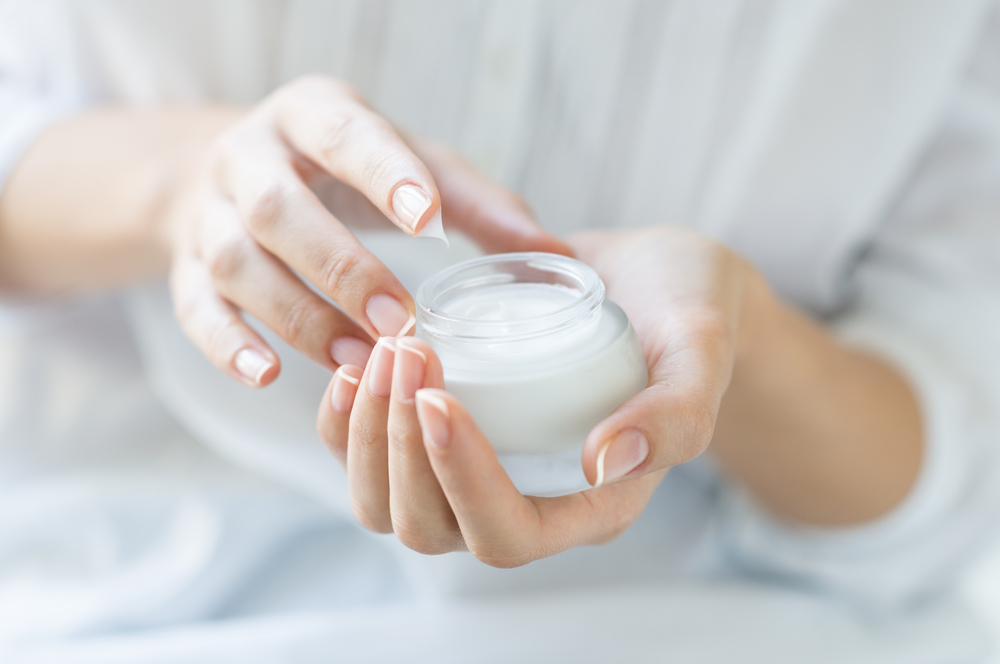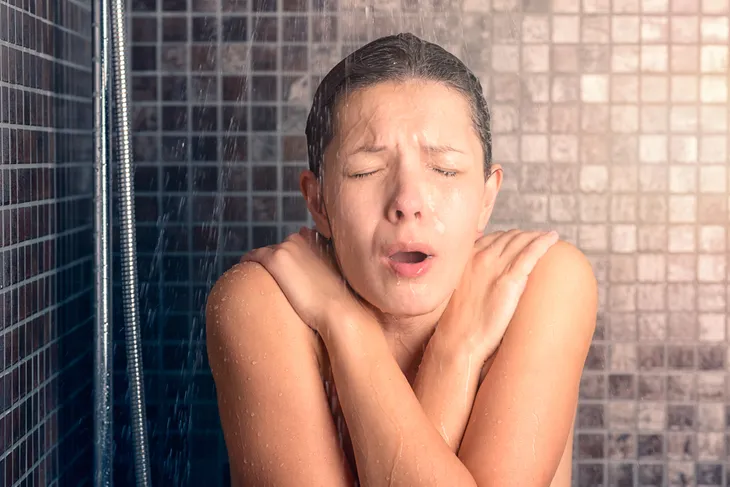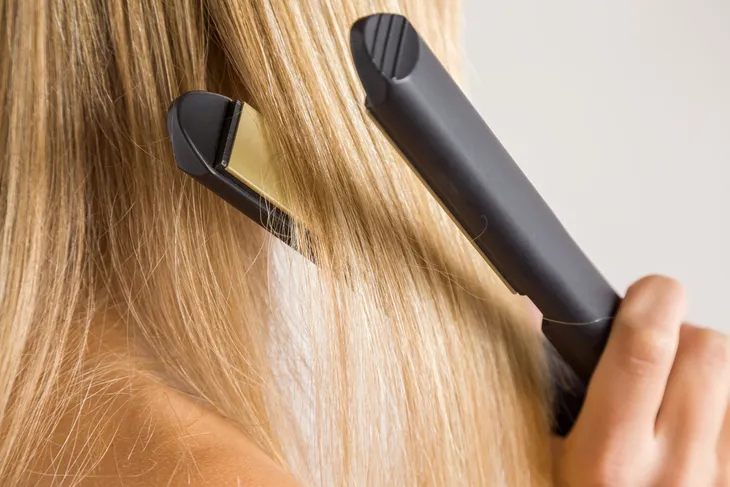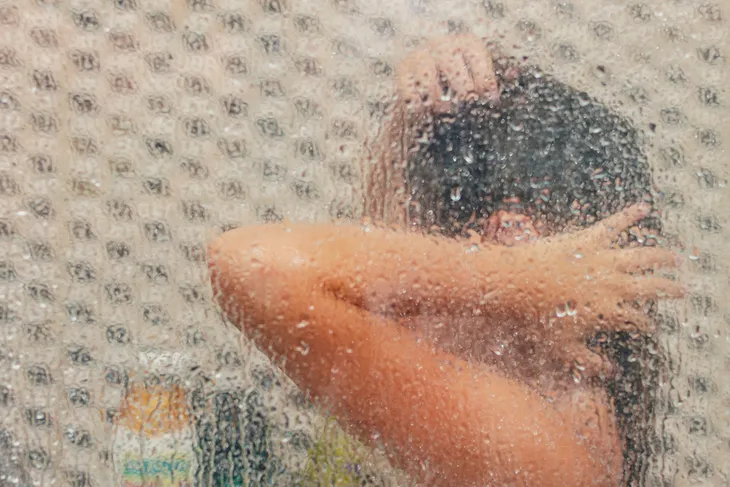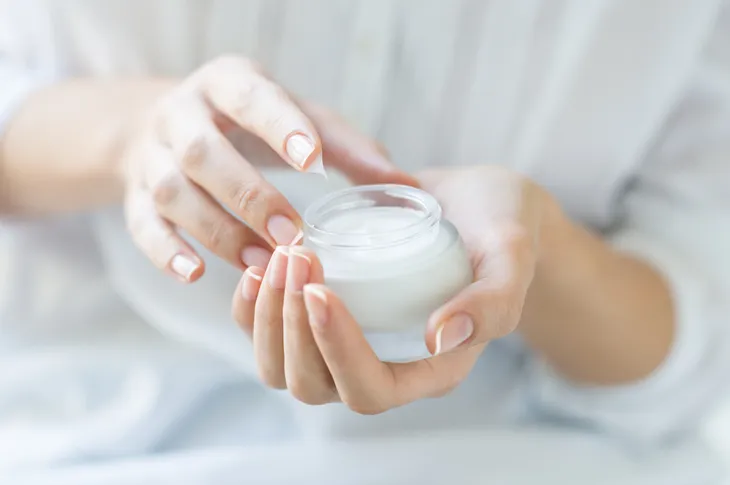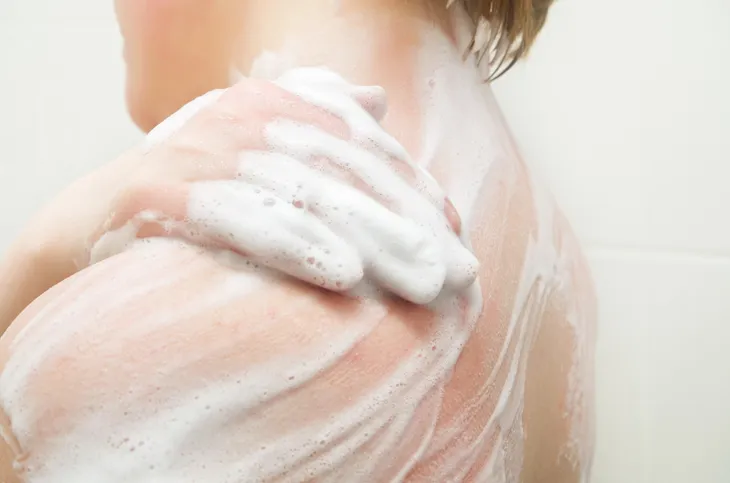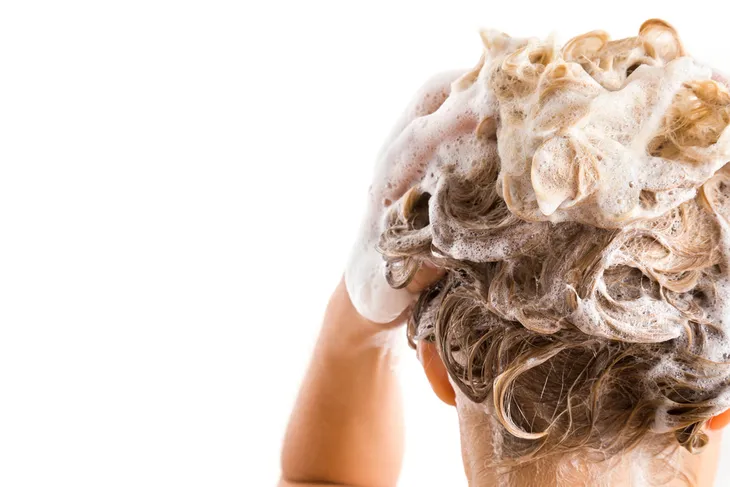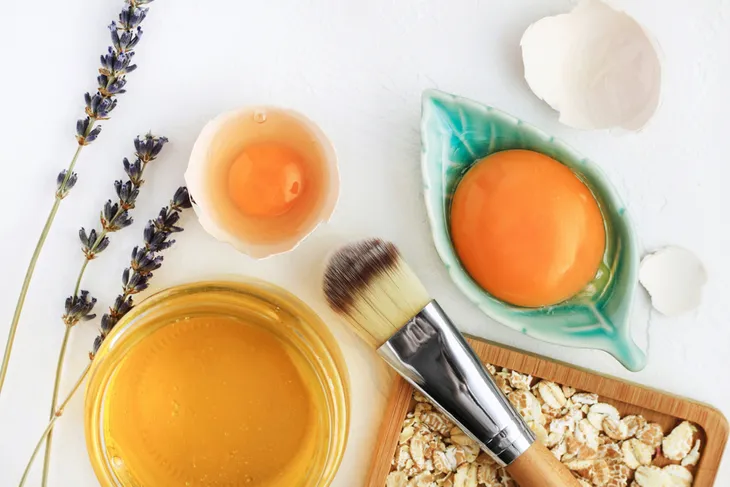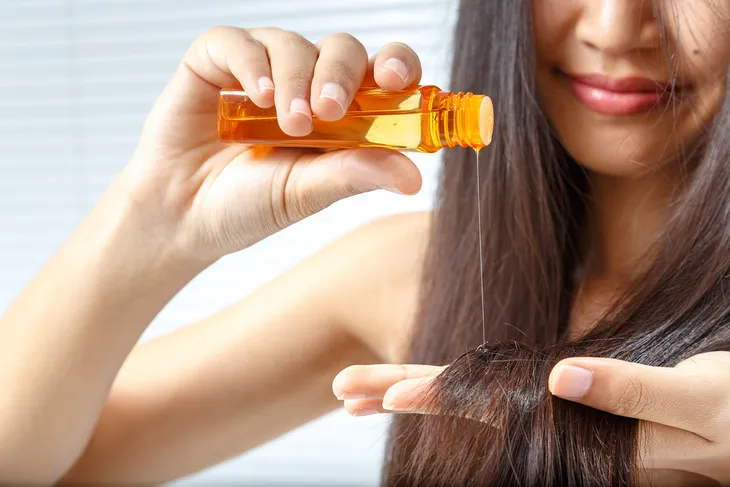Dry hair and dry skin are two common problems women and men face around the world. There are many causes of dryness and even more products out there that claim to repair these trouble areas, but they can be costly and often don’t work. Since everyone has different types of skin and hair, individuals respond differently to products.
And then there’s the risk that you’ll end up with other problems, like oily skin, redness, or greasy hair. But there is hope in solving these beauty struggles. Certain types of products and at-home remedies can help, as well as lifestyle changes and preventative habits.
If you’re tired of wasting money on so-called hydrating skin and hair remedies that don’t work, give these 10 dry hair and dry skin fixes a try—you’re bound to find one that does the trick…
Take Cooler Showers
A scalding hot shower or bath feels great at the end of a busy, stressful day. It can help your muscles relax and gives you time to relieve stress. Soaking up hot water spray or submerging into a hot bath can really lift your mood. But the benefits come with a price, and water temperature could be the reason you’re having a hard time keeping your skin smooth and hair nourished. Unfortunately, your beloved hot water can cause both dry hair and dry skin, so you might want to cut back on the heat to let your body heal.
Hot water makes your skin lose the natural oils that keep it smooth and hydrated, resulting in rough, dry skin. Your skin might feel tight and itchy, and may even become flaky in areas. This scale-like texture could be avoided by turning down the heat when you bathe. Your hair will also benefit from lukewarm showers because hot water can dehydrate it, making it look and feel dry. Hair can become weak and break when you’re brushing and styling. So turn down the temperature to help fix dry hair and dry skin.
Lower Heat on Hair Styling Tools
Blow-dryers, straighteners, wands, and curling irons. Odds are, you have at least one—if not most or all—of these products. Unsurprisingly, they’re a major culprit for drying out your hair and giving it that sort of brittle, stringy look. And really, it makes sense that these hairstyling tools can damage and dry out your hair because of how hot they get. It might seem amazing how quickly your hair straightener can tame your curls or disastrous bed head, but that’s because most of these tools heat up to more than 300 degrees Fahrenheit.
The outer layer of your hair has a cuticle made of proteins, which protects your hair against damage. Excessive, high heat contributes to breaking down and through this cuticle, leaving you with hair that looks and feels dry and breaks easily. Though you’ll add on a little extra time getting ready, just turning down your blow-dryer to medium or low heat could really help. By reducing how often you use hair styling tools, you can bring your hair back to health and fix the dryness that’s been plaguing you.
Find the Right Moisturizer
It can be extremely difficult and overwhelming to figure out what kind of moisturizer you should buy and use on your face and body. The choices are seemingly endless with everything from day and night, anti-aging, and corrective facial creams, to full body creams infused with cocoa and shea butter, vitamins, essential oils, fatty acids, and UV protection. But if you absorb anything that you read about choosing a moisturizer, remember this: oil-based creams are the best at treating dry skin.
If you have seriously dry or cracked skin, petroleum-based products are the most effective option. For dry skin, look for ingredients such as ceramides, glycerin, and hyaluronic acid to provide more hydration to skin. These types of creams lock in water better than others, and typically last longer. With how dry skin can get from the weather, washing your hands frequently, and showering, using the right moisturizer is important. The only downside to oil-based products is that it might worsen people’s condition of naturally oily skin, which usually occurs on the face. If this happens, use a different product for your face and the oil-based one for your body.
Reduce Shower Time
In addition to the temperature of your bath and shower, the length of time you spend bathing can also have a harsh effect on both your hair and skin. The longer your body is covered in hot water the worse it is for your skin and the higher your risk of it drying out. The hot water washes off the natural, protective oils that help with hydration by keeping water locked in. When you don’t want to rush your shower, try at least turning down the temperature to lower the damage to your skin.
Your hair can also become dry from taking long showers if the temperature is hot, or even just warm. Similar to it causing dry skin, the longer your hair is under hot water, the more damage like dryness will occur. Cutting your shower time down from 15-minutes to 10-minutes can make a noticeable difference to your hair. Not submerging your hair while in the bathtub or wearing a shower cap when in the shower could also help if you don’t want to give up your time bathing.
Moisturize Often
It often requires more than just some lifestyle changes in order to properly treat and prevent dry skin, and moisturizing regularly is one of the most common ways to do so. People become especially susceptible to dry skin during the winter months if they live in a place where the temperature plummets. The same can happen for those who live in dry, hot heat year round or during peak times in the summer. Extra treatment, like making sure you moisturize often, is a good way to combat dry skin.
It’s ideal if you can moisturize throughout the day and after a shower to keep skin hydrated by locking in water. Washing hands frequently from going to the washroom and before or after eating can really dry them out, so it’s worth keeping some moisturizer handy at your desk or work station. There are differing opinions about how soon after a shower you should moisturize, but it seems more experts lean towards doing it right after.
Eat Well and Drink Water
While there are several things that can dry out your hair, it might not be obvious that what you eat and how hydrated the rest of your body is affects hair health, but it does. Just like your fingernails and the ridges or discoloration that can occur when your body needs something, the health of your hair can reflect problems and deficiencies in your diet as well. Your hair is made of proteins, so it’s important to make sure you get enough protein every day or your hair will suffer by drying out.
Diets that cut out major food groups or those that aim to help you drop weight quickly often result in dry hair and hair loss. This is common for people with eating disorders where they eat very little to lose hair because their body goes into starvation mode and directs what little food and nutrients it gets to the most important organs. Drinking plenty of water is also important because your hair needs to be hydrated to be healthy, just like the rest of your body.
Use the Right Soaps
The amount of skin care products out there is both a curse and a blessing. The bad thing is that there’s so many to sort through and choose from, yet you need to make an informed decision because many soaps can cause dry skin by removing oils that help hydrate skin. But the good news is, there are also a lot of soaps that can fix dry skin and you’ll usually find out whether or not the soap is good for your skin and doesn’t cause any other problems.
When looking for the right soap to use, check the packaging for information. Unscented and hypoallergenic are often good choices because many people experience dryness, redness, and rashes from the harsh chemicals often found in soaps. Shower soaps with certain oils can fix dry skin by helping your skin retain moisture, and avoid antibacterial soaps because they’re one of the worst causes of dry skin. Remember that any skin care product can produce both good and bad reactions, but knowing what to look for can help guide you.
For most, we don’t need soap everywhere, only to armpits and buttocks daily us sufficient.
Wash Hair Less
The natural oils and proteins that protect your hair, making it shiny and healthy, are often damaged from the variety of things you do to it, and how often you wash your hair can have a big impact on its health. The best natural way that allows your hair to nourish itself without the use of products is to wash your hair less. When you wash your hair you strip off the essential oils, and believe it or not, these oils are good.
Oils are what prevent your hair from becoming dry. Washing them off on a daily basis will cause dry hair, so try washing it only 2-3 times a week. You might be used to washing it every day but cutting back will make a big difference on how hydrated your hair is. If you’re prone to greasy-looking hair, use a dry shampoo on days you don’t wash it. Another bonus of washing your hair less is that it’s easier to style when it isn’t freshly washed—hair products will stick to it better and it will stay curled or straightened for longer.
Create a Face Scrub or Mask
Odds are, many of the everyday items you keep stocked in your kitchen can be used to create a simple but effective face scrub or mask to fix dry skin. Not only can an at-home remedy fix and prevent dryness, a lot of the ingredients used in these DIY masks can make your skin look and feel the best it’s ever been. These masks and scrubs often only contain 1 or less than 5 ingredients, making it one of the quickest and easiest ways to get rid of dry skin—all without putting a dent in your bank account from buying expensive beauty products.
Many homemade facial scrubs and masks used for dry skin contain a main item like bananas, yogurt, oats, or avocados. Honey and eggs are another two common ingredients used in these mixtures. Avocados are effective at fixing dryness because of the natural oils in it. It might seem odd to use oil because many people have naturally oily skin, but it actually very effectively nourishes and hydrates skin. You can even directly use olive oil in a homemade facial mask instead of avocados.
Make Your Own Hair Treatment
Pinterest addicts know all about DIY projects, and have probably already tried some at-home beauty remedies. Scouring social media to help fix dry hair is a good idea, as long as you know what to look for. Unfortunately, many people have made costly mistakes while trying to emulate an ‘easy’ fix. But there are tons of at-home hair treatments that can do wonders to not only fix dry hair but also make it the healthiest it’s ever been.
Avocado seems to be a universal food that’s good for you to eat, as well as use in beauty treatments. Mixing an avocado with an egg can effectively revitalize dry and damaged hair because of the nutrients in the mixture, which include fatty acids and vitamins. You could skip the avocado and just use an egg yolk as a sort of conditioner. Lathering your hair in olive oil or a bit of butter are also quick fixes for dry hair. Leaving any of these treatments on your hair for 15- to 20-minutes will help repair it, and be sure to rinse hair thoroughly when done.
